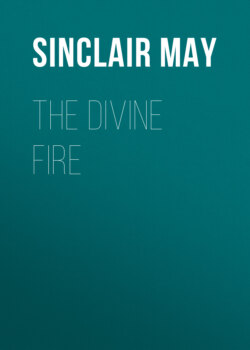Читать книгу The Divine Fire - Sinclair May - Страница 30
На сайте Литреса книга снята с продажи.
ОглавлениеThe wonder and the curse of friend and foe,
She watched the ranks of battle cloud and shine,
And heard, Achilles, that great voice of thine,
That thundered in the trenches far below.
Tears upon tears, woe upon mortal woe,
Follow her feet and funeral fire on fire,
While she, that phantom of the heart's desire,
Flies thither, where all dreams and phantoms go.
Oh Strength unconquerable, Achilles! Thee
She follows far into the shadeless land
Of Leuce, girdled by the gleaming sand,
Amidst the calm of an enchanted sea,
Where, children of the Immortals, hand in hand,
Ye share one golden immortality.
It was a voice from the sad modern world she knew so well, and in spite of its form (which was a little too neo-classic and conventional to please her) she felt it to be a cry from the heart of a living man. That man she had identified with the boy her grandfather had found, years ago, in a City bookshop. There had been no room for doubt on that point when she saw him in the flush of his intellectual passion, bursting so joyously, so preposterously, into Greek. He had, therefore, already a certain claim on her attention. Besides, he seemed to be undergoing some incomprehensible struggle which she conceived to be of a moral nature, and she had been sorry for him on that account.
But, if he were also—Was it possible that her grandfather's marvellous boy had grown into her cousin's still more marvellous man? Horace, too, had made his great discovery in a City shop. Helen in Leuce and a City shop—it hardly amounted to proof; but, if it did, what then? Oh then, she was still more profoundly sorry for him. For then he was a modern poet, which in the best of circumstances is to be marked for suffering. And to Mr. Rickman circumstances had not been exactly kind.
A modern poet, was he? One whom the gods torment with inspired and hopeless passion; a lover of his own "fugitive and yet eternal bride," the Helen of Homer, of Æschylus and Euripides, the Helen of Marlowe and Goethe, the Helen of them all. And for Mr. Rickman, unhappy Mr. Rickman, perdition lurked darkly in her very name. What, oh what must it feel like, to be capable of eliding the aitch in "Helen" and yet divinely and deliriously in love with her? Here Lucia was wrong, for Mr. Rickman was entirely happy with the aitch in Helen.
She was so sorry for him. But she did not see at the moment what she could do for him besides being sorry. And yet, if he were Horace's friend, she must do more. She was aware that she had been sorry for him chiefly because he was not a gentleman. Well, she had seen men before who were not gentlemen and she had been very far from feeling any sort of sorrow for them. But she had never in all her life seen anything like this inspired young Cockney, with his musical voice and afflicting accent, a person whose emotions declared themselves publicly and painfully, whose thoughts came and went as transparently as the blood in his cheeks, who yet contrived somehow to remain in the last resort impenetrable.
She could not ignore him. Apart from Horace he had established his claim; and if he was Horace's friend he had another and a stronger title to consideration. But was he? She had really no proof.
She wondered whether Mr. Rickman had missed his sonnet. She laid it almost tenderly in a conspicuous place on his table, and put a bronze head of Pallas Athene on it to keep it down. Then she wondered again whether he enjoyed the bookshop, whether he enjoyed making catalogues raisonnés, whether he enjoyed himself generally, and she hoped that at any rate he would enjoy his Easter Sunday. Poor little man.
Lucia was so happy herself that she wanted Mr. Rickman to be happy too.
